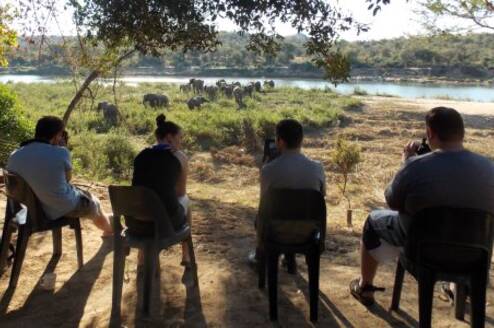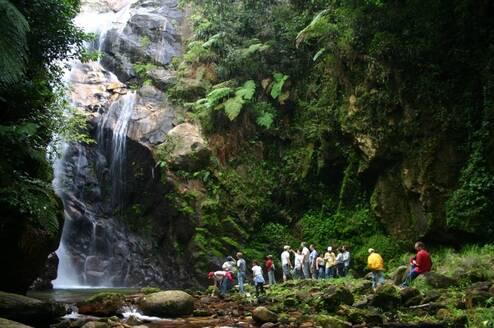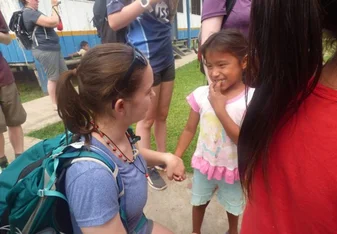I had such a wonderful time in the Peruvian Amazon with OPWALL last summer! It was something that I signed up to without really thinking it through fully (because I would probably never have taken the chance, otherwise), but it was undoubtedly one of the best decisions I have made. Because there is nothing in the world that compares to waking up each morning to the urgent squawking of brightly-coloured macaws overhead, the splash of pink river dolphins out for an early morning hunt, and the low, stirring call of the howler monkey which echoes through the foliage on all sides.
The two-week expedition was packed full of exciting, varied and genuinely meaningful fieldwork tasks, ranging from fishing and mist-netting to bat-counting and caiman-catching. Not only were all of the tasks exciting and awe-inspiring in themselves, offering a unique set of close-up encounters with species endemic to the most biologically diverse region on Earth, but we were constantly surrounded by the knowledge that what we were doing was actually helping to make a difference. By contributing invaluable data to the fieldwork studies, we were playing our part in sustainable rainforest management,to ensure its protection for the wildlife and communities reliant upon its resources. And all whilst having the time of our lives!
The OPWALL staff and the natives played an enormous part in helping to make the trip so enjoyable. They really looked after us throughout the trip, right from the moment the plane landed in Iquitos, and not only that, but we were entertained each evening with activities from pub quizzes to a particularly memorable night of salsa dancing! The staff have dedicated most of their lives to observing and studying the species in the Amazon in meticulous detail, and so had so much wisdom to share with us, which they did through a series of fascinating biodiversity lectures held throughout the trip. The local people working on the boats could not have been more friendly and welcoming, and the extent of their skills and talents when it came to producing souvenir crafts for us to take home, using resources from the rainforest, has to be seen to be believed...!
Another highlight of the trip was visiting the village of San Martin de Tipishca on the return boat journey to Nauta. The local children there were so delighted to see the boat again (the arrival of which is clearly viewed as a big event!), and the local people showed us great gratitude for the gifts of toys, clothes and medical provisions which we took for them. It was really promising to see the developments which had taken place there over the past few years, and in particular the brand new school, which was about to open. And it was extremely thought-provoking to see the hopeful faces of the children beaming, in spite of the poverty that surrounded them. In addition to this, what better way to spend the final afternoon of the trip than by feeding manatees their greens at the rehabilitation centre near Iquitos?!
Overall, I cannot recommend undertaking an expedition with OPWALL highly enough, to anyone who is interested in conservation and willing to experience an extraordinary ecosystem which so many talk about, but so few have actually set foot in. Even as a mere Geography student, with no expert knowledge or experience in biological surveying techniques, I got a huge amount out of the trip, and learnt a great deal along the way. OPWALL were there supporting me right from the start, providing tips and guidance for fundraising and detailed packing lists and tutorials to ensure that I was fully prepared for the expedition, and that I had a brilliant time.
I couldn't have been happier with my trip to the Amazon with OPWALL, and I strongly urge you to push the boat out next summer and join them, too. You will never regret it.

















